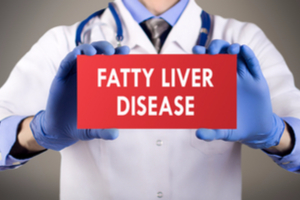Some forgetfulness often comes with aging, but it is important to know when memory loss is an indication of a more serious condition. Age-Associated Memory Impairment is simply age-related memory loss with no other underlying conditions as the cause. Alongside Age-Associated Memory Impairment are other more serious medical conditions, like Alzheimer’s Disease, causing the memory loss. By now you are probably wondering how you can discern what is causing the memory loss.
As the most common form of dementia, Alzheimer’s Disease causes memory impairment in older adults (in most cases). These memory lapses include issues with planning, language, reasoning, and perception and eventually interfere with everyday life. Just because older adults have bouts of forgetfulness doesn’t mean there is underlying Alzheimer’s Disease, but it is important to understand just what the symptoms of the disease are so if it is suspected, it can be properly diagnosed and treated.
Alzheimer’s Disease is divided into two types. Early-onset Alzheimer’s is rare, often diagnosed in conjunction with a genetic factor like Familial Alzheimer’s. Early onset is typically diagnosed in those who are in their 40s or 50s. Late-onset Alzheimer’s is common and is generally diagnosed in those who are 65 or older.
Symptoms of Alzheimer’s Disease
As you age, failing to remember an event or conversation in the past is not unusual, but simply a normal sign of aging. In contrast, with Alzheimer’s Disease come not only memory loss concerns but also mood swings, language difficulty, behavioral changes, and delusions.
The disease manifests early on with minor episodes of confusion regarding normal everyday tasks, like paying bills or putting away laundry. As Alzheimer’s progresses, symptoms like these become evident to close family and friends, but often not to the person experiencing the progression.
Common Symptoms of Alzheimer’s Disease
- Memory Loss – getting lost in well-known areas, not being able to name family members, or call items by name
- Personality and Behavioral Changes – irritability, mistrust, depression, confusion, fearfulness
- Sleep Changes
- Issues with Planning or Problem Solving – inability to work with numbers such as balancing a checkbook, or difficulty following instructions
- Impaired judgement – such as spending large amounts of money or failing to perform daily hygiene
- Communication Changes – inability to follow or carry on a conversation
- Withdrawal
If you notice any of these symptoms of Alzheimer’s Disease, consult with a physician for a complete evaluation. The physician can perform the evaluation and make a diagnosis with neurological testing and brain imaging. Once a diagnosis is made, treatment can begin with the goal of slowing the progression of the disease and getting the needed care or assistance.
How to Help a Loved One Diagnosed with Alzheimer’s Disease
Though Alzheimer’s has no cure, research is ongoing. There are new medications and management strategies which can help your loved one. Offering support, encouraging continued activity, particularly of basic skills, and even listening to music or engaging in a new hobby can help.
Ways to Help Loved Ones with Alzheimer’s
- Create a routine and stick with it
- Keep frequently used items in the same spot
- Ask simple straightforward questions
- Avoid overwhelming your loved one with information, instructions, or questions
- Help with finances and bill paying
- Encourage activity and hobbies
- Practice patience
- Help coping by reducing frustration
As a caregiver for a loved one with Alzheimer’s you will face a number of challenges in daily care and decision making. Each situation is different, but as a caregiver, you’ll want to gather the support and resources you need. Your loved one’s physician is a great place to start.




